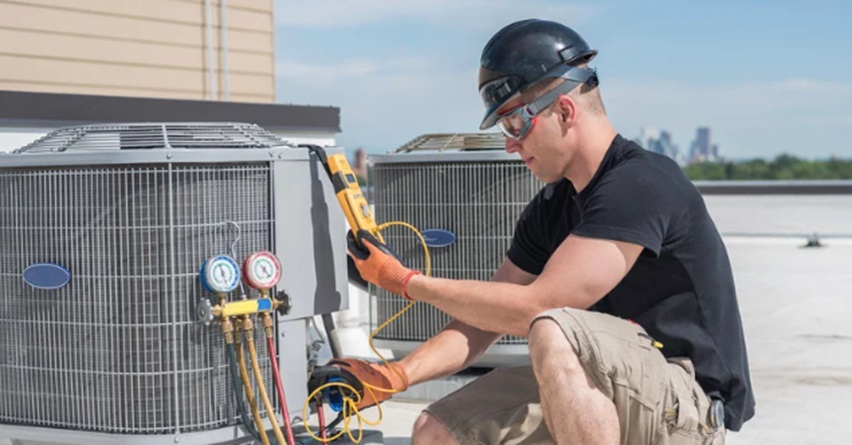Home Electrical 101: Safety Tips From Licensed Electricians
While it’s advisable to call the pros whenever you encounter severe electrical issues, you can always take the DIY route for some minor matters. That said, things such as shutting off your property’s circuit breaker involve safety measures that may be unfamiliar to you, as are other details about handling your home’s electrical components.
Long-time licensed electricians have shared a few tips to keep your house safe from power-related problems. Follow these guidelines to keep yourself out of harm’s way whenever you deal with electrical concerns head-on.
Never Overlook Any Warning Noises
Sometimes, you may hear some strange sounds around your house. Do not ignore these noises, as they can point to something wrong with your electrical system. The things you hear can indicate a very hot light switch, a breaker that won’t reset, or problems with an outlet that may cause fires. Always keep note of these warning signs and call licensed electricians to have them fixed as soon as possible.
Turn Off the Individual Switches Before the Main Breaker
Most people shut off the main power breaker directly during a home electrical circuit crisis. This move can result in severe circuit damage, which leads to higher repair costs. Avoid this mistake by turning off the small breakers before the main system. Doing so lessens the current flow to the primary breaker, allowing you to fix your electric problems safely and efficiently.
Low Voltage Can Still Pose a Threat
Remember to take safety precautions even when working on a low-voltage system. The current, not the voltage, can pose a danger, as you can still receive a mild shock that can disorient you and cause you to fall off ladders or stools.
You should always treat low-voltage circuits as if you’re handling a breaker with standard voltage. Additionally, observe securing connections for your safety, as inadequately secured low-voltage wires may emit sparks that can result in electrical fires.
Understand the Purpose of GFCI Breakers
A ground-fault circuit interrupter or GFCI breaker protects outlets installed close to a water source, specifically within a six feet distance. The device quickly powers down when it detects a ground fault, preventing you from suffering an electrical shock.
GFCIs protect every circuit downstream and are often placed in bathrooms and outdoor outlets. As non-isolated circuits, the breakers shut off the outlets and lighting fixtures in a room whenever they trip.
Use a Non-Contact Voltage Tester Before Fiddling With Wires
Inside your electrical outlet, you may find a complex network of wires, electrical tape, and various components. This web of circuits can be intimidating, especially if you’re planning DIY repairs. To guarantee your electrical safety, use a non-contact voltage tester before proceeding with your task. The device ensures whether a line is dead or active, preventing you from getting electrical shocks.
Devices on Standby Mode Still Draw Power
When some electrical devices are on standby mode, their power consumption remains active. And, to wake up at full speed, gadgets that use remote controls require a fixed stream of power. For example, phone and laptop chargers still draw electrical energy even when not plugged into their respective devices.
Overhead Power Lines Are Always Live
Outdoor overhead lines can be a safety hazard as most are not insulated. Aside from spacers at utility poles, these power wires only have weather coating for exterior protection. Typically, most electrical lines’ structural makeup is sufficient for their purpose, as they are high above the ground.
However, average-quality insulation degrades over time, and if one exterior wire falls on your roof or yard, it can pose a danger to you and your family. If you encounter troubles with overhead lines, it’s best to leave the repairs to licensed technicians or utility workers.
Know the Limits of Your DIY Abilities
Solving your electrical problems yourself is a great way to understand your home’s circuits and hone your troubleshooting skills. However, knowing your limits and when to call an electrician to do the job will save you time and effort.
When implementing DIY solutions, only work on electrical components outside your walls. As a rookie, you shouldn’t be fiddling with wires inside your systems to avoid further damage or getting electrocuted. As you advance your skills, you can do a little more, such as fishing a cable or installing an outlet.
Call Licensed Electricians for Comprehensive Service
Don’t hesitate to call a trusted company if you require professional help. Reach out to licensed electricians in your area if you need support with your power issues. Certified specialists can resolve any of your troubles with expertise, safety, and precision. They can also advise on how to use DIY methods effectively for minor electrical concerns.












